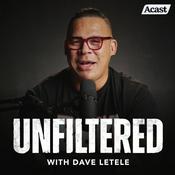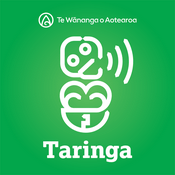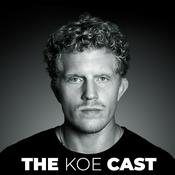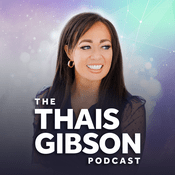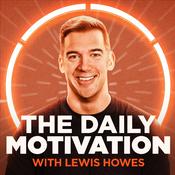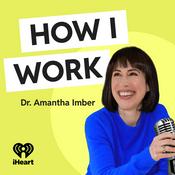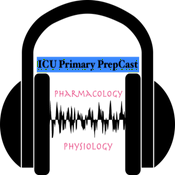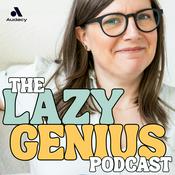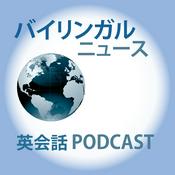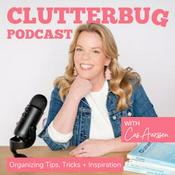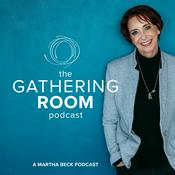567 episodes
A Moment of Change in Public Health Policy: Dr. Paul Offit, Director of the Vaccine Education Center at Children’s Hospital of Philadelphia
19/2/2026 | 22 mins.Few issues have tested public trust in medicine as deeply as vaccines, and few individuals have influenced that dialogue more than Dr. Paul Offit, director of the Vaccine Education Center at the Children’s Hospital of Philadelphia and a longtime member of the FDA’s Vaccine Advisory Committee. In this timely and candid interview with Raise the Line host Lindsey Smith, Dr. Offit points to this year’s severe flu season and a resurgence of measles as alarming proof points of how a changing federal perspective on vaccine policy is having a real impact on public health. “You’d like to think you can educate about the importance of vaccines, but I fear at this point the viruses themselves are doing the educating.”
In this wide ranging discussion, Dr. Offit also addresses:
The rigorous and painstaking process of developing vaccines, based on his experience co-inventing the rotavirus vaccine.
Shifting levels of public trust in scientific organizations.
Promising innovations in vaccine development.
Don’t miss this deeply-informed perspective on the interplay of science, policy, and public education, and his encouraging message to young clinicians about managing the current challenges in public health.
Mentioned in this episode:
Vaccine Education Center at Children's Hospital of Philadelphia
Perelman School of Medicine
If you like this podcast, please share it on your social channels. You can also subscribe to the series and check out all of our episodes at www.osmosis.org/podcastA Trusted Voice on Allergies and Asthma: Dr. Zachary Rubin, Pediatric Allergist-Immunologist at Oak Brook Allergies
12/2/2026 | 27 mins.“I do not believe we should be testing to test. We have to know, is this test going to change management and is it going to make a difference,” says pediatric allergist-immunologist Dr. Zachary Rubin. His knack for providing that sort of straightforward guidance explains why Dr. Rubin has become a trusted voice on allergies, asthma, and vaccines for his millions of followers on social media platforms. It’s also why we couldn’t ask for a better guide for our discussion on the rise in allergies, asthma, and immune-related conditions in children, and how families can navigate the quickly evolving science and rampant misinformation in the space. On this episode of Raise the Line, we also preview Dr. Rubin’s new book, All About Allergies, in which he breaks down dozens of conditions and diseases, offering clear explanations and practical treatment options for families.
Join host Lindsey Smith for this super informative conversation in which Dr. Rubin shares his thoughts on a wide range of topics including:
What’s behind the rise in allergic and immune-related conditions.
Tips for managing misinformation, myths and misunderstandings.
How digital platforms can be leveraged to strengthen public health.
How to build back public trust in medicine.
Mentioned in this episode:
All About Allergies book
Bench to Bedside Podcast
Instagram
TikTok
YouTube Channel
If you like this podcast, please share it on your social channels. You can also subscribe to the series and check out all of our episodes at www.osmosis.org/podcastBuilding Climate-Ready Health Systems for a Massive Region: Dr. Sandro Demaio, Director of the WHO Asia-Pacific Centre for Environment and Health
29/1/2026 | 26 mins.“Climate change is the biggest health threat of our century, so we need to train clinicians for a future where it will alter disease patterns, the demand on health systems, and how care is delivered,” says Dr. Sandro Demaio, director of the WHO Asia-Pacific Centre for Environment and Health, underscoring the stakes behind the organization’s first regionally-focused climate and health strategy. The five-year plan Dr. Demaio is leading aims to help governments in 38 countries with 2.2 billion people manage rising heat, extreme weather, sea-level change, air pollution and food insecurity by adapting health systems, protecting vulnerable populations, and reducing emissions from the healthcare sector itself. In this timely interview with Raise the Line host Michael Carrese, Dr. Demaio draws on his experiences in emergency medicine, global public health, pandemic response and climate policy to argue for an interconnected approach to strengthening systems and preparing a healthcare workforce to meet the heath impacts of growing environmental challenges. This is a great opportunity to learn how climate change is reshaping medicine, public health and the future of care delivery.
Mentioned in this episode: WHO Asia-Pacific Centre for Environment and Health
If you like this podcast, please share it on your social channels. You can also subscribe to the series and check out all of our episodes at www.osmosis.org/podcastA Passion for Human-Centered Care: Negeen Farsio, Graduate Student at Brunel University of London
22/1/2026 | 26 mins.We have a special episode of Raise the Line on tap today featuring the debut of host Dr. Parsa Mohri, who will now be leading our NextGen Journeys series that highlights the fresh perspectives of learners and early career healthcare professionals around the world on education, medicine, and the future of care. Parsa was himself a NextGen guest in 2024 as a medical student at Acibadem University in Turkey. He’s now a general physician working in the Adult Palliative Care Department at Şişli Etfal Research and Training Hospital in Istanbul. Luckily for us, he’s also continuing in his role as a Regional Lead for the Osmosis Health Leadership Initiative (OHLI). For his first guest, Parsa reached out to a former colleague in the Osmosis family, Negeen Farsio, who worked with him as a member of OHLI’s predecessor organization, the Osmosis Medical Education Fellowship. Negeen is now a graduate student in medical anthropology at Brunel University of London, a degree which she hopes will inform her future work as a clinician. “Medical anthropology is a field that looks at healthcare systems and how human culture shapes the way we view different illnesses, diseases, and treatments and helps you to see the full picture of each patient.” You are sure to enjoy this heartfelt conversation on how Negeen’s lived experience as a patient and caregiver have shaped her commitment to mental health and patient advocacy, and how she hopes to marry humanity with medicine in a world that yearns to heal.
If you like this podcast, please share it on your social channels. You can also subscribe to the series and check out all of our episodes at www.osmosis.org/podcast
More Education podcasts
Trending Education podcasts
About Raise the Line
Join host Lindsey Smith and other Osmosis team members for a global conversation about improving health and healthcare with prominent figures in education and healthcare innovation such as Chelsea Clinton, Mark Cuban, Dr. Ashish Jha, Dr. Eric Topol, Dr. Vivian Lee and Sal Khan, as well as senior leaders at organizations such as the CDC, National Institutes of Health, Johns Hopkins University, WHO, Harvard University, NYU Langone and many others.
Podcast websiteListen to Raise the Line, Begin Again with Davina McCall and many other podcasts from around the world with the radio.net app
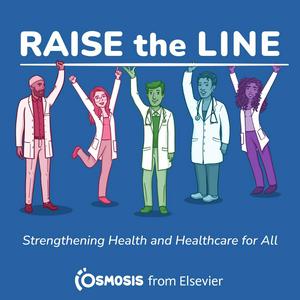
Get the free radio.net app
- Stations and podcasts to bookmark
- Stream via Wi-Fi or Bluetooth
- Supports Carplay & Android Auto
- Many other app features
Get the free radio.net app
- Stations and podcasts to bookmark
- Stream via Wi-Fi or Bluetooth
- Supports Carplay & Android Auto
- Many other app features


Raise the Line
Scan code,
download the app,
start listening.
download the app,
start listening.






